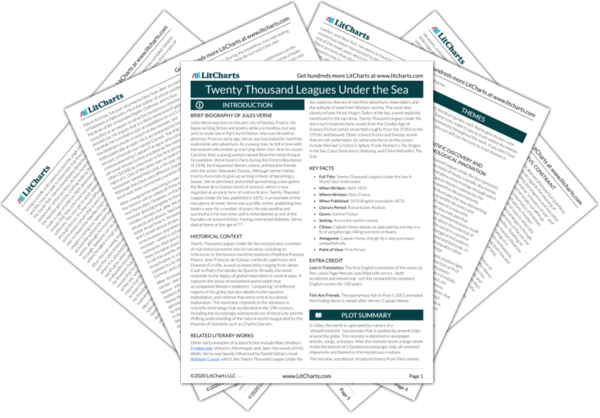Previous
Part 2, Chapter 7
|
Previous
Part 2, Chapter 7
|
Twenty Thousand Leagues Under the Sea: Part 2, Chapter 8 Summary & Analysis |
Next
Part 2, Chapter 9
|


Upgrade to unlock the analysis and theme tracking for all of Twenty Thousand Leagues Under the SeaTwenty Thousand Leagues Under the Sea!
Get LitCharts A+